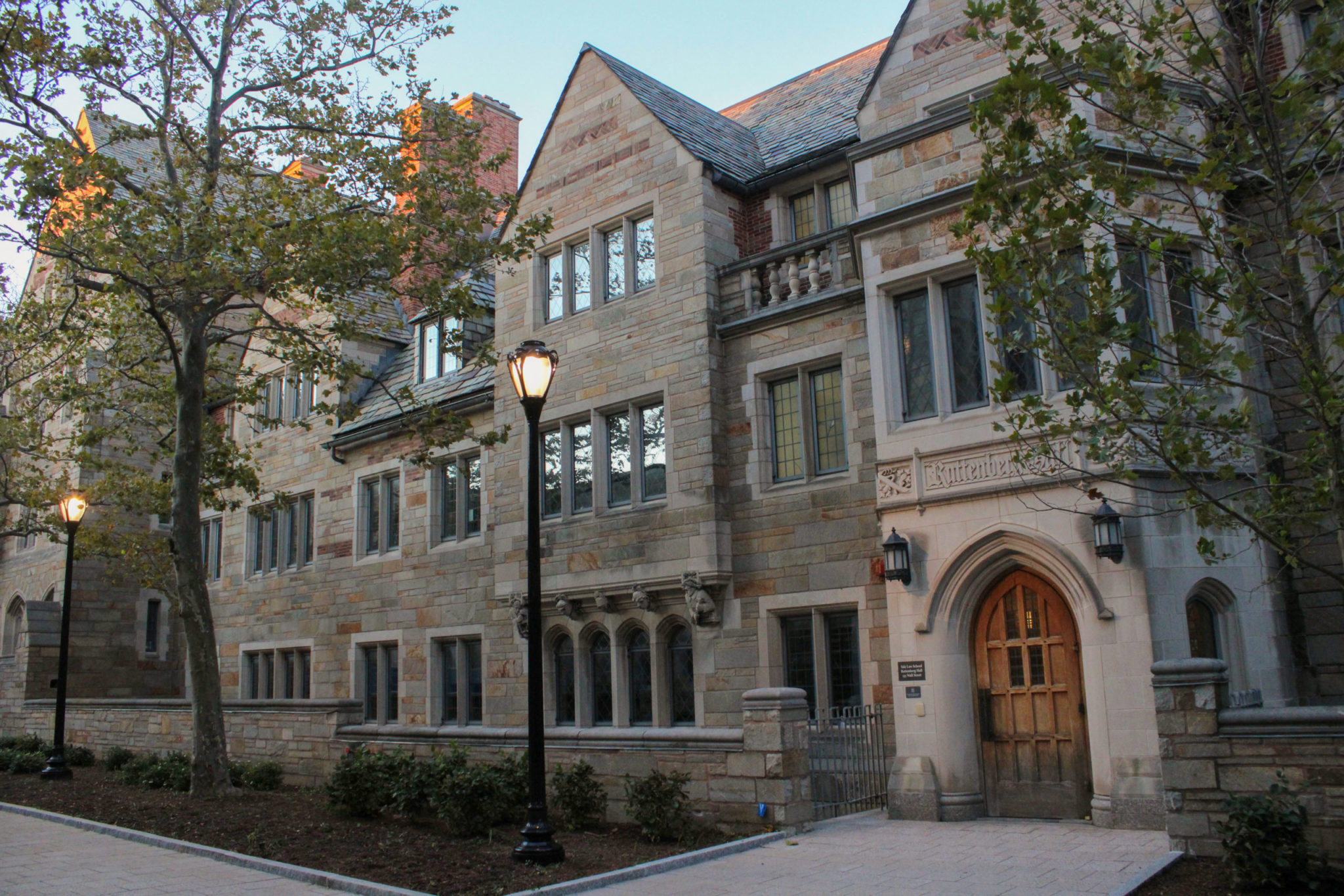Yale Law School goes tuition-free for students with greatest need
Yale Law School has become the first law institution to erase tuition for J.D. students living below the poverty line.

Yasmine Halmane, Photo Editor
On Monday, the Yale Law School became the first and only law school in the country to make a law degree tuition-free for students with the greatest financial need.
The Hurst Horizon Scholarship Program erases tuition for law students whose family income is below the federal poverty guidelines and with assets below $150,000, and awards them the entire cost of tuition and other fees. The scholarship is set to launch in the fall of 2022, and it will be available for all students who are enrolled in the school at that time — including current first and second year law students — and all students who meet the criteria onwards. The Law School estimates that approximately 45 to 50 law students will be eligible for the program when it launches. Several students expressed excitement over the policy, but stressed that additional changes are necessary to improve equity in the legal profession.
The Program was made possible by a donation from Soledad Hurst LAW ’92 and Robert Hurst, David ’75 LAW ’78 and Patricia Nierenberg, and Gene LAW ’73 and Carol Ludwig. The lead donation from Soledad and Hurst was $20 million.
“The Hurst Horizon Scholarship Program is like a one two punch for equity,” Dean of the Yale Law School Heather Gerken said. “First, we are giving these students the freedom to do anything they want when they graduate and really just throw themselves into the law school experience. Combined with The Tsai Leadership Program, we will also be able to provide training and professional networks to students who come here without those networks. And that is incredibly important.”
Gerken shared that the conversations that helped shape the program heavily involved students, alumni and faculty voices. Over a year ago, the Law School faculty had voted to allow Gerken to make these changes to the school’s financial aid policy.
She emphasized that the Law School is committed to ensuring that generations of students are able to receive these scholarships, particularly those students with significant financial need.
“Our focus with the Program has been on what the experience of students is like when they get here,” Gerken said. “We focus on making sure that students have a level playing field when they get to the Law School — that’s what has been in our hearts.”
Currently, only Yale Law School and Harvard Law School provide financial aid on a solely need-based basis. This academic year, 77 percent of Yale Law School students received some sort of financial aid. The Yale Law School — which practices need-blind admissions — also currently has one of the lowest student debt loads amongst law schools.
The Hurst Horizon Scholarship Program expands upon the Law School’s Horizon Grant, which was introduced in 2021 and awards $4,000 to students who fall below the federal poverty guideline and own less than $150,000 in assets.
“One of the things about the magic of this place is that when we move, others are often inspired to follow us,” Gerken said. “When we created a loan forgiveness program, other schools began to do the same. And we’re really hoping that this is one of those moments where we will be able to start a conversation about the way legal education is funded so that more schools will consider getting financial aid to those students who need it the most.”
Melisa Olgun LAW ’24 and Arifa Ali LAW ’24 said that the Program relieves a significant portion of the stress associated with attending law school. They explained that student debt is a “big concern” for low income students when selecting which school to attend, or even whether to attend law school at all.
Olgun and Ali expressed their excitement that other schools will follow in Yale’s footsteps with regard to equity and financial aid.
“I was happy hearing the news because for the people who qualify for the scholarship, their lives will be changed,” Ali said.
Sophie Clark LAW ’23, a current second-year student who qualifies to receive the scholarship when it launches next year, said that she was “personally thrilled” and that the program was “wonderful news.”
Still, some students said that there is more work necessary to make a legal education more affordable and attainable. Ali and Olgun both mentioned that relying on the federal poverty line to determine eligibility excludes some low income students who still need significant financial support but do not qualify for the Hurt Horizon Scholarship Program. Clark also emphasized that, while the program represents significant progress, the greater legal community is still full of inequity.
“The program points to this larger issue with the way universities fund themselves, which is not solved by letting a few poor students, whose families fall under the poverty line, in for free each year,” Clark said. “As if a handful of once-poor people — myself included — having a chance to grab power can do anything to undo the decades/centuries of the already-powerful maintaining their positions.”
All the students and Gerken expressed interest in expanding the program in years to come to reach a greater number of low-income students.
“I think critiques of the scholarship are essential for that push forward for equity, but not at the cost of understating its importance,” Olgun said. “Within my activism as an undergraduate, I’ve found that there needs to be a balance between demanding more equity, more accessibility to given institutions, and also recognizing the steps taken so far.”
Tuition for the Law School’s 2021-22 academic year totaled $67,108.







